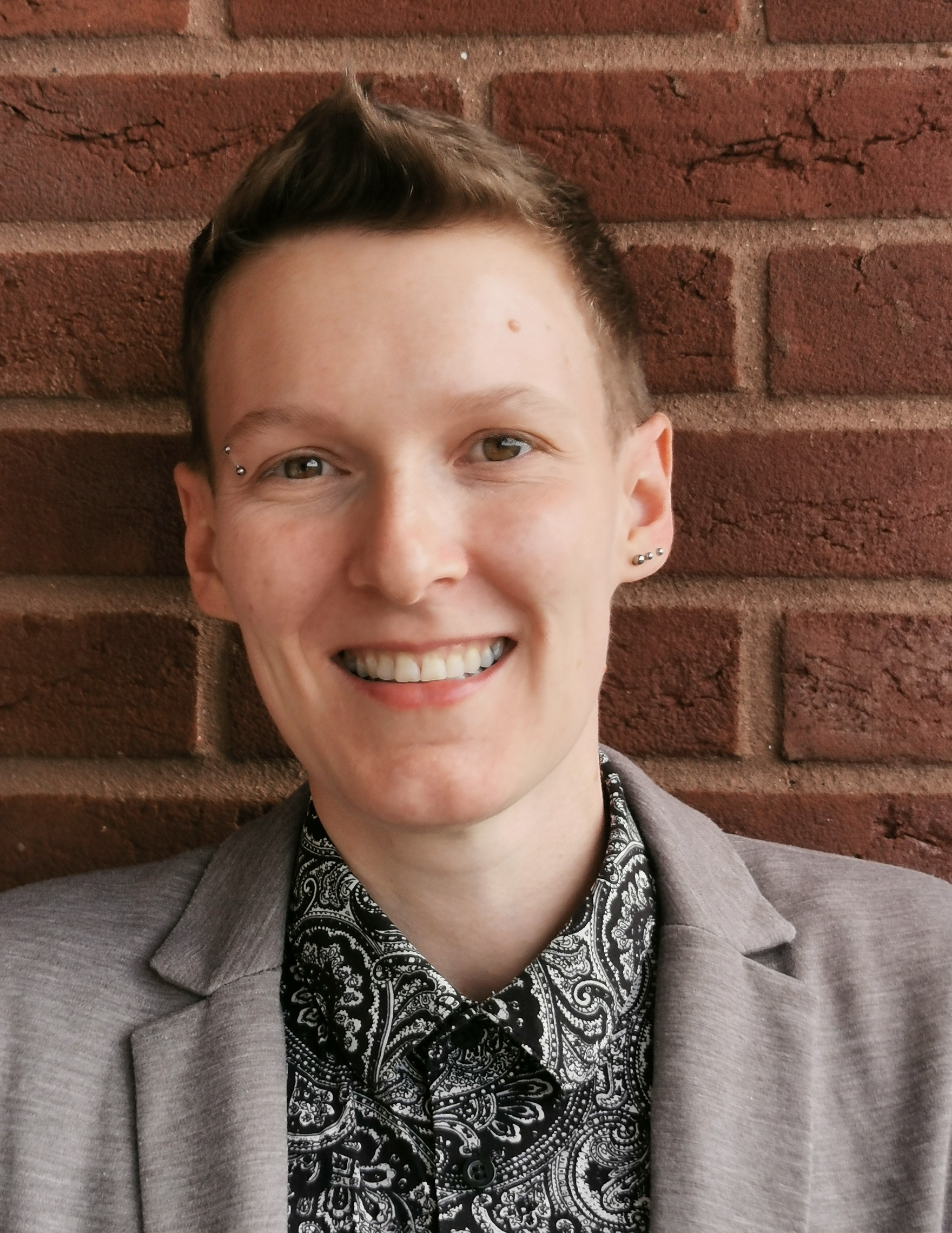Purdue social psychology researcher a UNICORN in their field

Social psychology Assistant Professor Thekla Morgenroth, middle, sits with their UNICORN Lab colleagues graduate student Kira Means, left, and lab manager Casey McMahon.Tim Brouk
Written by: Tim Brouk, tbrouk@purdue.edu
It’s research Thekla Morgenroth, assistant professor in the Purdue University Department of Psychological Sciences, wished they didn’t have to do.
The recent focus of Morgenroth’s work has been on negativity toward trans people. The researcher, who identifies as nonbinary and uses they/them pronouns, won the inaugural Purdue College of Health and Human Sciences Diversity, Equity and Inclusion (DEI) Science Consortium Faculty Paper Award for a recent article in the Personality and Social Psychology Bulletin, a publication from the Society of Personality and Social Psychology. The article received numerous upvotes on Reddit as well.

Thekla Morgenroth
“What underlies the opposition to trans-inclusive policies? The role of concerns about male violence versus attitudes toward trans people” explored cisgendered adults’ views toward trans people’s place in women-only spaces, such as restrooms or locker rooms.
“To be in a world where this work was irrelevant because everything is great and trans people were just included and there weren’t any anti-trans policies, I would definitely choose that world,” Morgenroth said. “I think the reason why it’s getting so much attention is that the world is not in a great place in that way.”
There is no evidence of trans people committing violent acts against women in such settings. Still, this hypothetical idea is cited by politicians and religious leaders when speaking against trans people’s rights. But Morgenroth said the fear of violence against women by a trans person is a superficial worry.
“That’s just the stuff that kind of sounds nice: that they’re looking out for cisgendered women’s safety,” they added. “The argument makes zero sense — of course we know most attacks on women don’t happen in bathrooms by strangers.
“It’s just a way to hide your prejudice.”
Another project by Morgenroth and their lab manager Casey McMahon was accepted by the Social Psychology and Personality Science journal for publication later this year. “Gender nonconformity leads to identity denial for cisgender and transgender individuals” also explores the negative attitudes against trans people as well as how often trans people are misidentified and even denied their identity.
With states all over the nation writing and passing anti-trans legislation, Morgenroth’s work is evocative of today’s headlines.
“I did not anticipate this would become so timely. I wish it wasn’t,” they said. “I wish that we didn’t live in this climate where this is such a polarizing topic.
“(The) time for this research really is now. A few years ago, fewer people were doing this kind of research in mainstream social psychology. The quantitative work is just now becoming a thing.”
Biases turn into policies
In both projects, Morgenroth and their team utilized Prolific, an online bank of potential survey respondents. They gauged the opinions of more than 1,000 people from Britain and the United States.
The trends found in the responses were eye-opening. Morgenroth and their students found certain demographics of people they thought would support trans rights did not, such as some women who identify as feminists.
“People who are just generally more prejudiced against marginalized groups, that makes sense. But then you also have some feminist groups who I would think have a lot of things in common with such beliefs and worldviews, but they seem to be united with very far right-wing people in this sort of anti-trans quest,” Morgenroth explained. “This is interesting and confusing to me, and I want to know more about that. There is something really important missing here.”
According to Morgenroth, such biases trickle to political offices, which then find their way to statehouse floors.
“It’s just more and more,” they said. “People are just blinded by their bias.
“Gender-based policies can really affect not just (transgender)people but also (cisgender) people. It’s not just trans people that are told they are in the wrong space. It’s anyone who doesn’t conform to these very narrow conceptions of what gender should look like.”
Finding community
After years at Exeter University in England as a PhD student and then postdoc, Morgenroth made a quick impact since arriving at Purdue in January 2022. With research initiatives that also touch on different ideologies in feminism and why people oppose sex-work decriminalization, Morgenroth quickly staffed their lab, which has been dubbed the UNICORN (UNderstanding Identity and the COntinuance of Roles and Norms) Lab.
Graduate student Kira Means looks to earn her first publications as part of Morgenroth’s team. The first-year PhD student said she found her perfect fit in the UNICORN Lab.
“I don’t think there’s anyone in the country that does the things that Thekla does,” said Means, whose main academic interests have always been psychology and gender studies. “It’s exciting to integrate research methods into gender understanding.”
Several other students work as research assistants (RAs), and the UNICORN Lab enjoyed a fast start in the department. The cozy area with maroon-painted walls featuring a gifted, colorful unicorn print is already a hub for undergraduate and graduate researchers to scour data and work on qualitative coding of research.
“I’m hoping this is a good, inclusive space where the RAs really feel like they have a home,” Morgenroth said. “I really feel like this can be like a safe space where people, especially queer students, can feel safe and find community. I feel like I’m inside my community. It feels affirming and safe, and I absolutely love that. Every time we have lab meetings, I think ‘Ah, these people are so cool, and I’m so lucky to work with them.’”
Discover more from News | College of Health and Human Sciences
Subscribe to get the latest posts sent to your email.